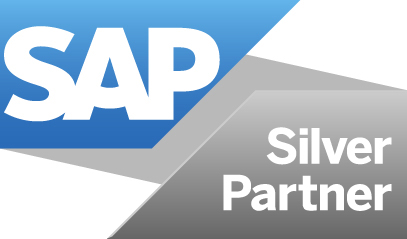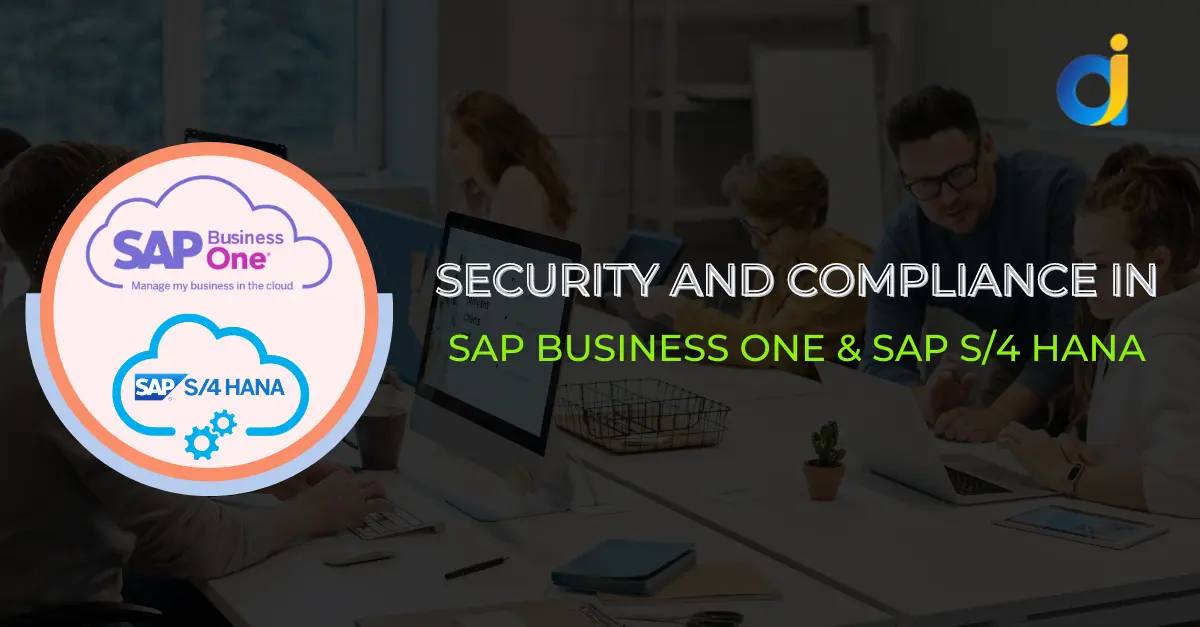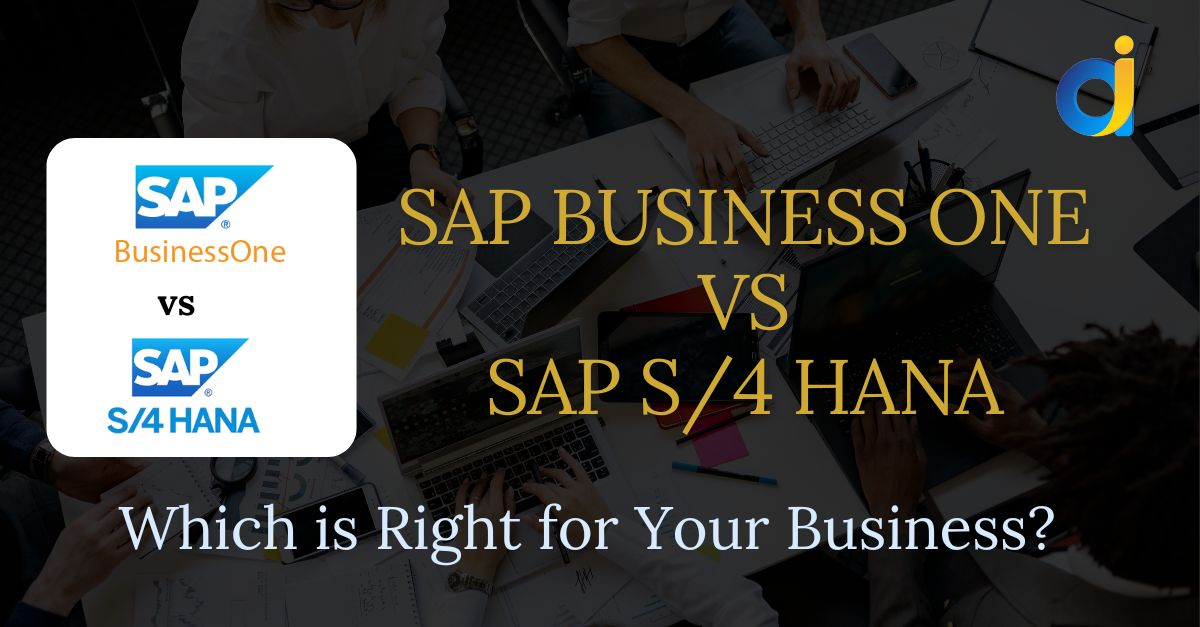In today’s digital age, keeping company data safe is more crucial than ever. Businesses like yours might be struggling to manage complex security measures and meet strict regulatory requirements.
One overlooked area could put your sensitive information at risk, leading to not just financial loss but also damaging your reputation. Knowing the importance of fortified data protection and compliance can save you from these pitfalls.
Here’s an interesting fact: SAP Business One and SAP S4HANA come packed with features designed for top-notch security management and ensuring adherence to global compliance standards.
This article aims to guide business decision-makers through the essential steps towards achieving stringent data security and managing compliance efficiently within these platforms.
You’ll learn about tools for access control, risk management strategies, cyber-security protocols, and how regular updates help in maintaining a secure ERP environment. Stay tuned for key insights that will bolster your confidence in handling data protection challenges effectively.
Key Takeaways
SAP Business One and SAP S4HANA offer powerful features like user authorisation management, data encryption, and audit trails to enhance data security. These tools help businesses meet strict compliance requirements and protect sensitive information.
Regular updates in SAP Business One play a vital role in maintaining system security against new threats and ensuring compliance with changing global standards. This includes patch management, incorporating security enhancements, supporting compliance audits, training users on interface changes, improving system performance, and integrating feedback for continuous improvement.
Global compliance standards such as GDPR, ISO/IEC 27001, HIPAA, PCI DSS, SOX, FISMA, and the NIST Cybersecurity Framework are crucial for organisations using SAP systems. Adhering to these regulations protects customer data from breaches while sustaining business integrity by demonstrating commitment to secure operations.
Effective documentation practices within SAP Business One allow companies to keep detailed records that support quick responses during audits or investigations. This helps demonstrate adherence to regulatory requirements through evidence of proper data handling practices.
Implementing strong cybersecurity measures in ERP systems like SAP Business One not only mitigates risks associated with evolving cyber threats but also ensures ongoing operational continuity within today’s digital landscape.
Data Security and Compliance with SAP Business One
Data security is crucial for any business using SAP Business One. Compliance with regulations ensures that companies protect sensitive information and maintain customer trust.
Understanding the significance of data security
Data security plays a crucial role in protecting sensitive information within organisations. It safeguards against unauthorised access, ensuring confidentiality and integrity. For business decision makers, the importance of robust security protocols cannot be overstated.
Effective data security measures contribute to compliance management by addressing regulatory requirements and establishing trust with clients and partners.
Organisations face numerous risks related to cyber threats, making effective governance and risk management essential. A strong emphasis on data privacy not only protects assets but also enhances overall operational efficiency.
By implementing comprehensive information security strategies, businesses can navigate complex compliance landscapes while maintaining high standards of quality management across their operations.
Navigating through complex compliance requirements
Compliance requirements can often seem overwhelming for businesses using SAP Business One. Various regulations, including GDPR and industry-specific standards, impose strict guidelines on data handling.
Adhering to these is not just a legal obligation; it ensures the integrity of your organisation’s operations. Using SAP Business One provides access to compliance certifications that validate alignment with regulatory frameworks.
This helps establish trust with clients and stakeholders while safeguarding sensitive information.
Implementing effective security policies becomes essential in this context. A solid foundation in access management protects against unauthorised entries into systems, thus maintaining data confidentiality.
Regular audits and robust audit trails within SAP tools support ongoing adherence to compliance mandates. Businesses appreciate the importance of documenting procedures and updates which contribute to a culture of accountability across all levels of operation.
Cybersecurity measures integrated into ERP systems help mitigate risks associated with evolving threats while ensuring compliance continuity.
The role of ERP solutions in ensuring data security and compliance
ERP solutions play a crucial part in ensuring data security and compliance. They provide integrated frameworks that help organisations manage sensitive information effectively while adhering to regulatory requirements.
With features like user authorisation and data encryption, SAP Business One enhances the control over who accesses what data, thereby safeguarding against unauthorised breaches.
These systems are designed to simplify compliance with global standards by automating documentation processes and offering regular updates. This not only streamlines paperwork but also ensures that businesses remain aligned with ever-changing regulations.
By leveraging cloud security measures, companies can protect their data efficiently while maintaining operational continuity within today’s digital landscape.
Ensuring Data Security with SAP Business One
SAP Business One offers powerful tools to safeguard sensitive information. These features help businesses maintain compliance with global standards and protect data from unauthorised access.
Built-in tools for data security
SAP Business One offers various built-in tools that strengthen data security and help achieve regulatory compliance. These features protect sensitive information while ensuring businesses can operate smoothly.
- User Authorisation Management: This tool allows businesses to set specific access rights for different users. With this feature, sensitive data stays secure as only authorised personnel can access certain functionalities or information.
- Data Encryption: Data encryption protects information at rest and in transit. Even if a breach occurs, encrypted data remains unreadable to unauthorised users, maintaining confidentiality.
- Audit Trails: Audit trails provide a record of all system activities. This transparency helps identify any irregularities or potential threats, supporting compliance with regulatory standards.
- Backup and Recovery Options: Automated backup processes safeguard against data loss. Regular backups ensure recovery of important information in the event of hardware failure or cyber-attacks, protecting business continuity.
- Integration with Security Solutions: SAP Business One seamlessly integrates with third-party security applications. This enhances the overall security framework by allowing businesses to implement additional protective measures tailored to their needs.
These built-in tools highlight the commitment to both security and compliance in SAP Business One, addressing critical concerns for decision-makers looking to safeguard their company’s data effectively.
Documentation and paperwork
Effective documentation and paperwork are crucial aspects of security and compliance in SAP Business One. Robust record-keeping enables organisations to maintain a clear audit trail, which is vital for regulatory requirements.
Proper documentation ensures that all transactions, changes, and system access points are logged accurately. This traceability promotes accountability among users while mitigating risks related to data breaches.
Comprehensive paperwork also supports quick responses during audits or investigations. It helps demonstrate adherence to global compliance standards by providing evidence of data handling practices.
Strong documentation practices complement the built-in tools for data security within SAP Business One, fostering a culture of transparency and trust in your organisation’s operations.
User authorisation plays a critical role in this process as it directly impacts who can access sensitive information and perform key actions within the system.
Global compliance standards
Global compliance standards play a vital role in data security for organisations using SAP Business One and SAP S4HANA. These frameworks help businesses navigate legal requirements while maintaining secure operations.
- GDPR (General Data Protection Regulation): This regulation applies to all companies handling personal data of EU citizens. It mandates strict protocols on data collection, processing, and storage. Non-compliance can lead to significant fines up to €20 million or 4% of global turnover.
- ISO/IEC 27001: This international standard outlines the criteria for establishing, implementing, and maintaining an information security management system (ISMS). Achieving certification demonstrates a commitment to managing sensitive company information securely.
- HIPAA (Health Insurance Portability and Accountability Act): For businesses in the healthcare sector, HIPAA sets standards for protecting patient information. Compliance ensures that sensitive health data is stored and shared safely, reducing the risk of breaches.
- PCI DSS (Payment Card Industry Data Security Standard): Organisations that handle card payments must adhere to PCI DSS requirements. The standards include guidelines on securing cardholder data during transactions, thereby safeguarding against fraud and cyber threats.
- SOX (Sarbanes-Oxley Act): Publicly traded companies must comply with SOX regulations regarding financial transparency and accountability. This includes protecting financial data from tampering or loss, which often involves secure ERP solutions like SAP Business One.
- FISMA (Federal Information Security Management Act): Applicable to U.S. federal agencies and contractors, FISMA requires a framework for protecting government information systems against cyber threats. Meeting these standards helps firms build trust with governmental clients and partners.
- NIST Cybersecurity Framework: Developed by the National Institute of Standards and Technology, this framework provides guidelines to manage cybersecurity risks effectively within organisations. Aligning with NIST helps ensure comprehensive protection against potential threats.
These global compliance standards emphasise the importance of integrating security measures into business processes within SAP Business One environments as well as ensuring adherence to best practices in compliance management which directly impacts business credibility and operational integrity.
Compliance in SAP Business One
Compliance in SAP Business One focuses on user authorisation, data encryption, and regular updates. These features help businesses meet various legal and regulatory requirements. Understanding these aspects is crucial for maintaining security within your organisation.
Explore how compliance measures can protect your company further.
User authorisation
User authorisation plays a critical role in security and compliance for SAP Business One. It ensures that only authorised personnel can access sensitive data, mitigating risks of data breaches or misuse.
Role-based access controls allow businesses to tailor permissions, restricting users to only the information needed for their specific roles.
Effective user authorisation is crucial for compliance with regulations such as GDPR and HIPAA. Regular reviews of user access rights help maintain security integrity. By managing these permissions carefully, organisations enhance their overall data protection strategy in SAP Business One and demonstrate commitment to robust security and compliance standards.
Data encryption
Ensuring data security extends beyond user authorisation and includes vital measures like data encryption. This process transforms sensitive information into unreadable codes, effectively safeguarding it from unauthorised access.
SAP Business One incorporates robust encryption methods that comply with global standards such as AES (Advanced Encryption Standard).
These protocols protect critical business data during transmission and storage, making it exceedingly difficult for malicious actors to decipher the content without the appropriate decryption key.
By employing these advanced techniques, organisations can enhance their overall security posture while fulfilling compliance requirements within SAP Business One and SAP S4HANA frameworks.
Regular updates
Regular updates are essential for maintaining data security and compliance in SAP Business One. They ensure protection against new threats while aligning with changing regulations.
- Patch Management: Keeping software up to date is crucial. Companies must regularly apply updates and patches released by SAP. These patches fix vulnerabilities that cybercriminals could exploit, safeguarding sensitive information.
- Security Enhancements: Each update often introduces new security features. These enhancements strengthen the existing framework of data protection. Incorporating these features helps businesses comply with industry standards.
- Compliance Audits: Regular updates support compliance audits by ensuring the system adheres to current regulations. Well-maintained software demonstrates a commitment to security, which can satisfy regulators during assessments.
- User Training: Updates frequently include changes to user interfaces or processes. Training staff on these modifications ensures they remain proficient in using SAP Business One securely and effectively.
- Performance Improvements: Updates not only focus on security but also improve overall performance. Optimised systems work more efficiently, allowing swift data processing without compromising compliance or safety.
- Feedback Integration: User feedback often drives update designs and functionalities. This interaction creates a cycle of continuous improvement, ensuring that the software meets user needs while maintaining strong security measures.
The next heading will discuss compliance strategies within SAP Business One to further bolster your enterprise’s security framework.
Conclusion: The Importance of Data Security and Compliance in the Digital Age
Data security and compliance hold immense significance for businesses utilising SAP Business One and SAP S4HANA. Implementing built-in tools enhances protection while adhering to global standards streamlines your compliance efforts.
Assessing user authorisation ensures that sensitive data remains secure, which is crucial in today’s digital landscape. How will you reinforce these strategies within your organisation?
Consider the impact of strong security measures on operational efficiency and customer trust. Exploring further resources can bolster your understanding of these critical areas. Embrace proactive steps towards safeguarding your data; doing so positions your business for long-term success.
Every action taken today shapes a more secure tomorrow in an increasingly complex environment.
FAQs: Security & Compliance in SAP B1 and S4HANA






